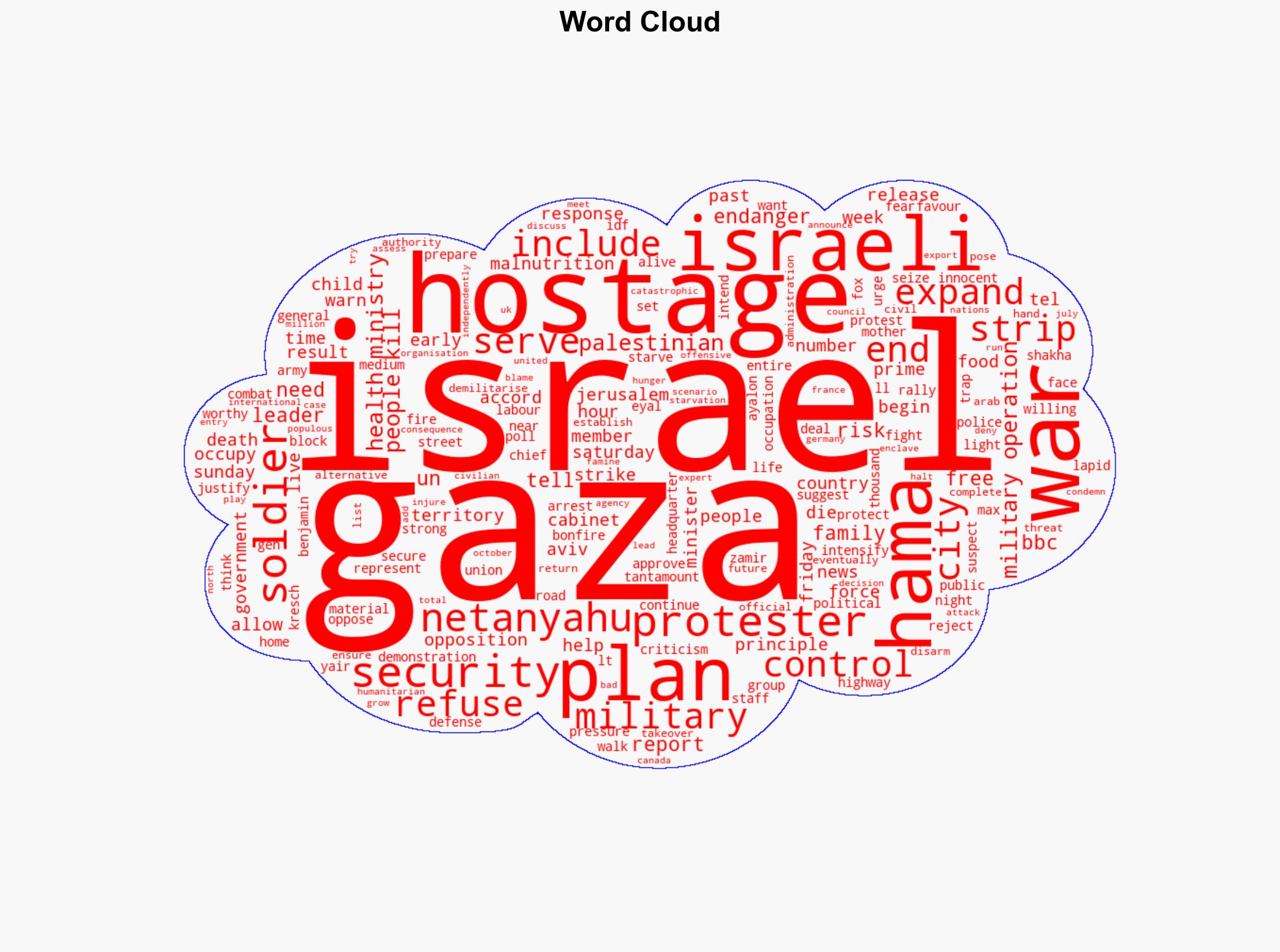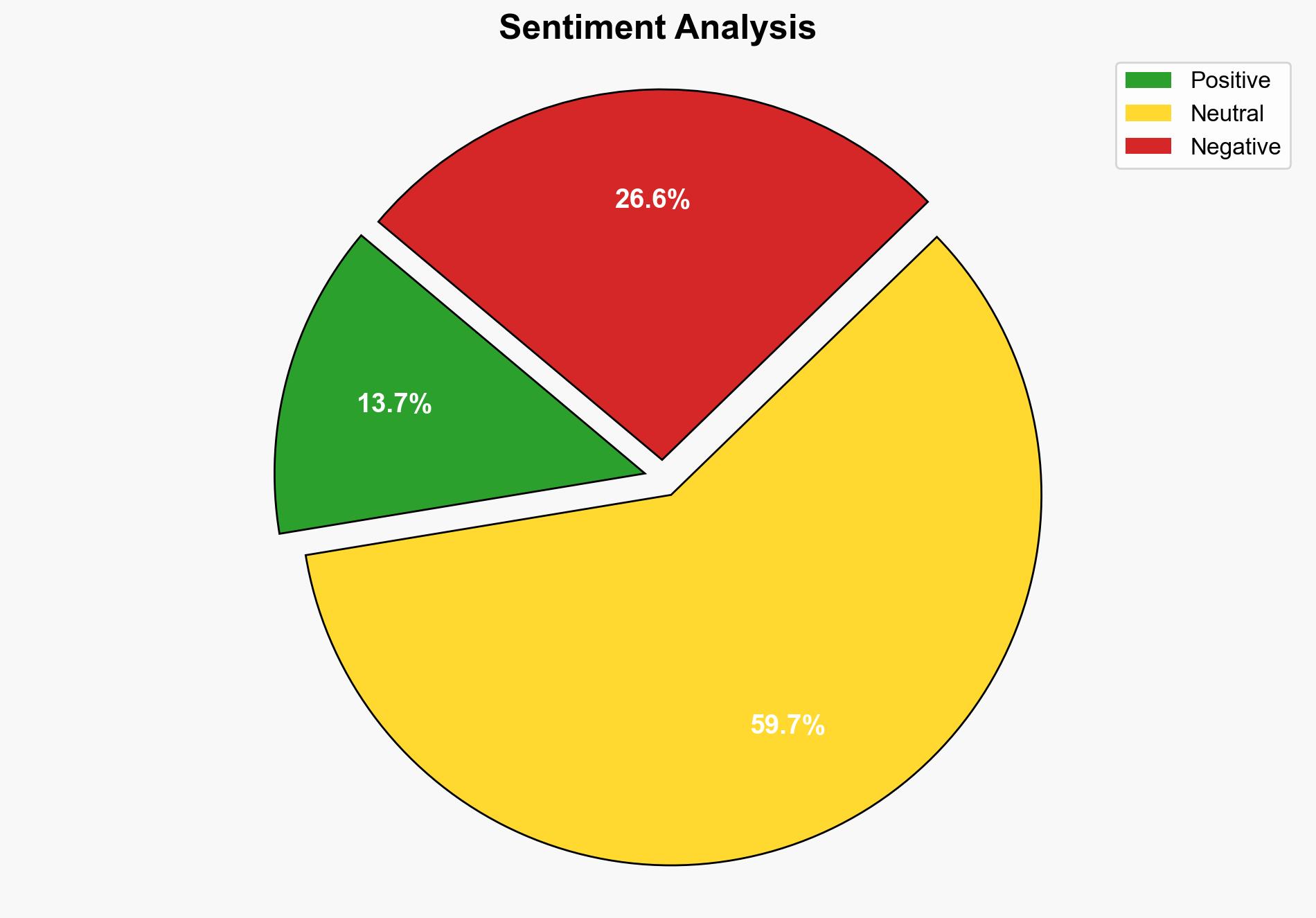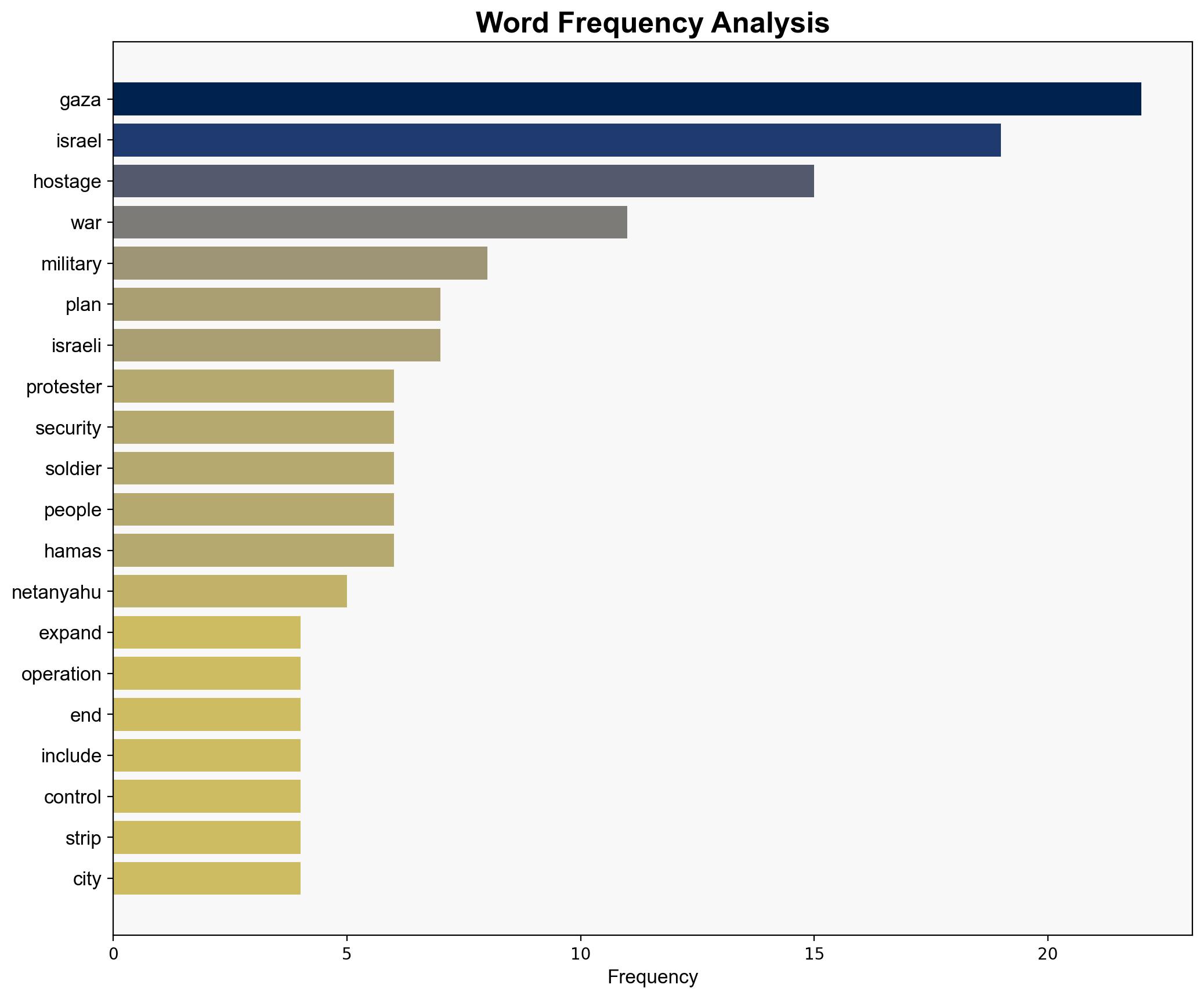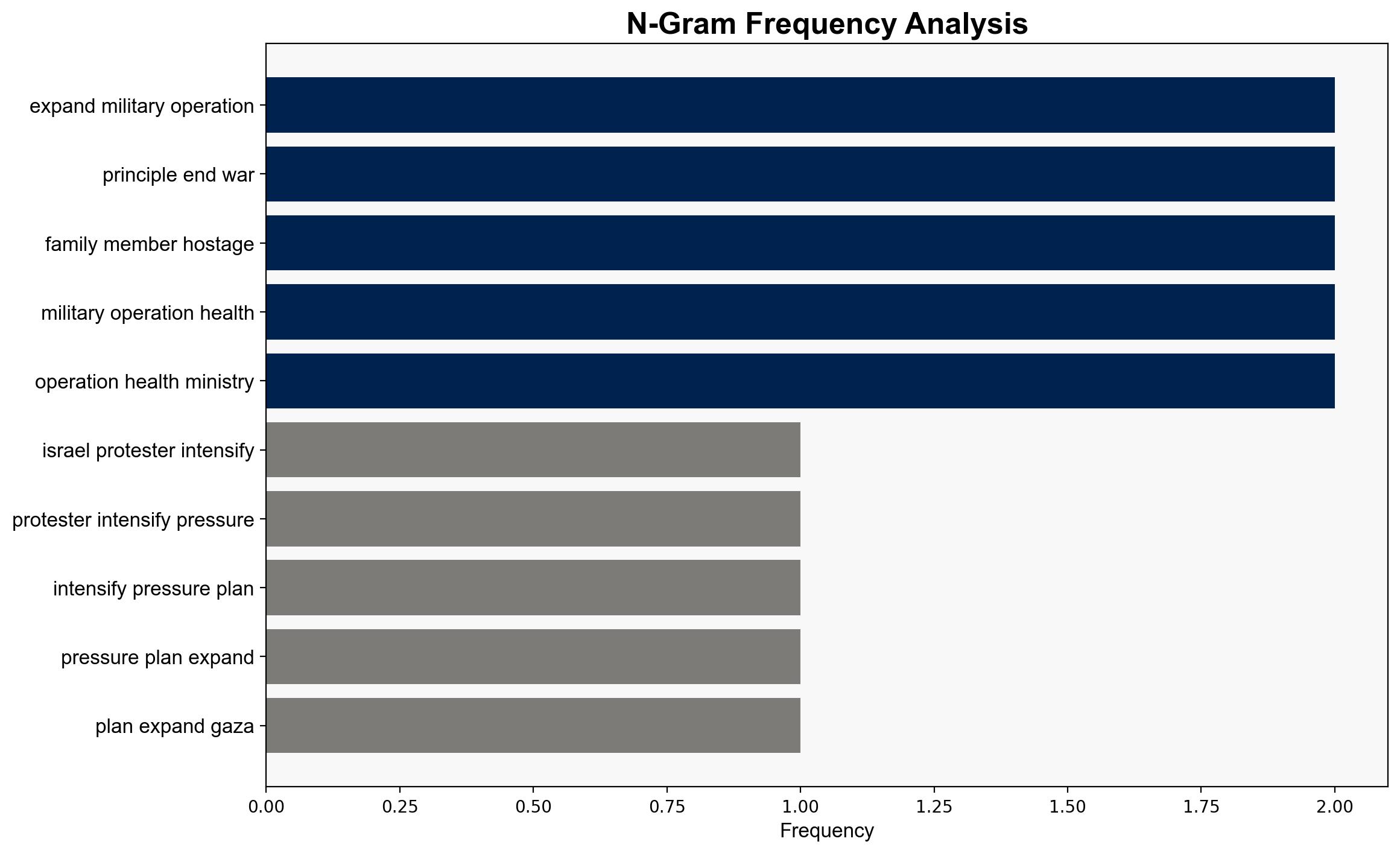Protesters intensify pressure against Netanyahu plan to expand Gaza war – BBC News
Published on: 2025-08-10
Intelligence Report: Protesters intensify pressure against Netanyahu plan to expand Gaza war – BBC News
1. BLUF (Bottom Line Up Front)
The situation in Israel regarding the expansion of military operations in Gaza is highly contentious, with significant domestic opposition. The most supported hypothesis is that the protests will intensify, potentially leading to a political crisis for the Israeli government. Confidence level: Moderate. Recommended action: Monitor protest dynamics and international responses to anticipate potential shifts in Israeli policy.
2. Competing Hypotheses
1. **Hypothesis A**: The protests will lead to a significant policy shift by the Israeli government, potentially halting or altering the military expansion in Gaza.
– **Supporting Evidence**: Widespread protests, including participation from families of hostages and military personnel; public opinion favoring a deal with Hamas.
2. **Hypothesis B**: The Israeli government will continue with its current military strategy despite protests, focusing on long-term security objectives.
– **Supporting Evidence**: Statements from Benjamin Netanyahu and the Israeli security cabinet emphasizing the necessity of military control in Gaza for future security.
Using ACH 2.0, Hypothesis A is moderately supported due to the scale and diversity of protests, but Hypothesis B remains plausible given the government’s security priorities.
3. Key Assumptions and Red Flags
– **Assumptions**:
– The protests will continue to grow in size and influence.
– The Israeli government perceives the protests as a significant threat to its policy.
– **Red Flags**:
– Lack of clear communication from the Israeli government on potential concessions.
– Potential underestimation of international pressure and its impact on Israeli policy.
– **Blind Spots**:
– The internal dynamics within the Israeli government and military regarding dissent.
– The role of international actors in influencing Israeli policy.
4. Implications and Strategic Risks
– **Domestic Unrest**: Continued protests could destabilize the Israeli political landscape, leading to a potential government crisis.
– **International Relations**: Increased international condemnation could isolate Israel diplomatically, affecting its global standing.
– **Humanitarian Concerns**: Escalation in Gaza could exacerbate humanitarian crises, drawing further international scrutiny and pressure.
– **Security Risks**: Prolonged conflict may increase regional instability and the risk of broader conflict.
5. Recommendations and Outlook
- Engage in diplomatic dialogues with key international stakeholders to mitigate isolation risks.
- Consider confidence-building measures with protest groups to reduce domestic tensions.
- Scenario Projections:
– **Best Case**: Peaceful resolution with a negotiated settlement and reduced hostilities.
– **Worst Case**: Escalation of conflict leading to widespread regional instability.
– **Most Likely**: Continued protests with incremental policy adjustments by the Israeli government.
6. Key Individuals and Entities
– Benjamin Netanyahu
– Yair Lapid
– Lt. Gen. Eyal Zamir
– Max Kresch
7. Thematic Tags
national security threats, regional focus, political instability, humanitarian crisis





